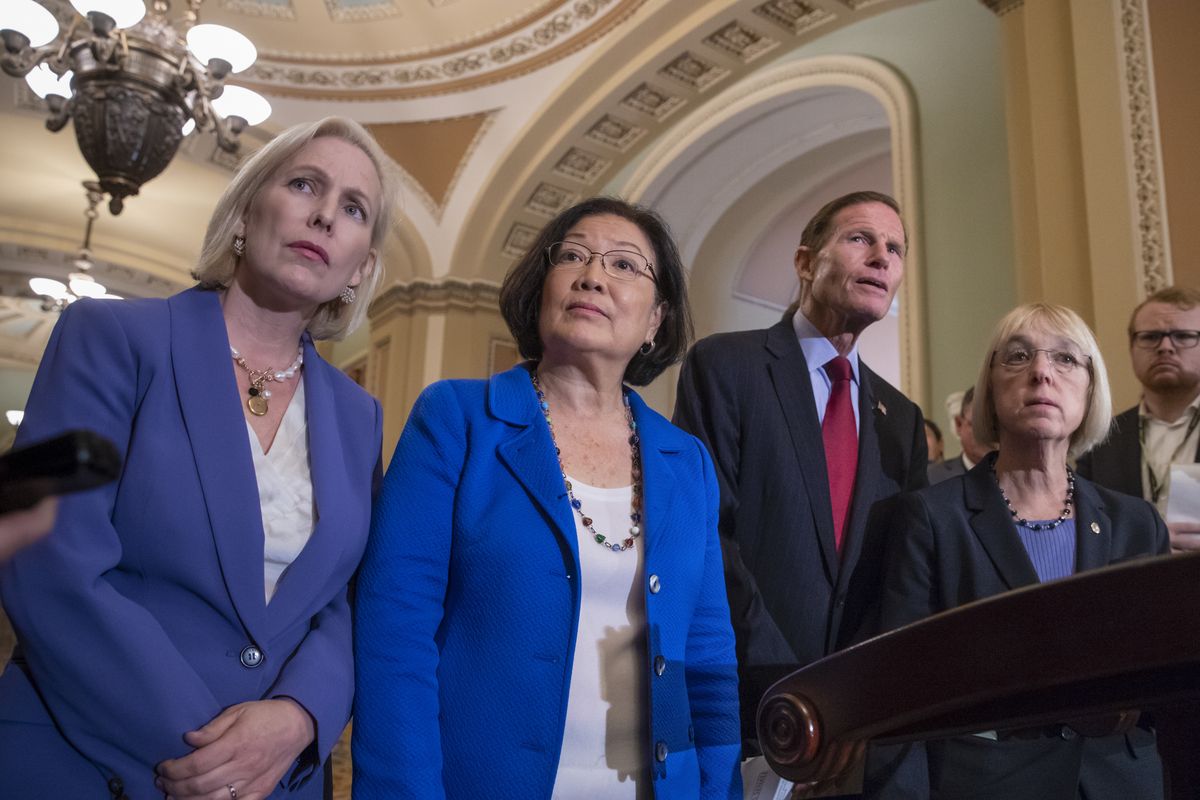Pacific Islanders living in Spokane may finally be able to access health coverage

People from the Marshall Islands living in the United States may finally have access to Medicaid more than two decades after they were excluded from the program.
The restoration was made as part of the massive package of COVID-19 relief and government spending approved by Congress on Monday night, giving former residents of the Marshall Islands and other Pacific Islands a chance at Medicaid coverage.
The Pacific Islander Community Association of Washington called it a “historic moment.”
“Our stories, our resilience, and our love for one another has brought us to this moment,” the advocacy group wrote on Facebook.
President Donald Trump signed the legislation into law Sunday, though he had threatened to veto the entire package over what he alleged is frivolous spending and insufficient COVID-19 relief for individuals.
The Marshallese and Pacific Islander community in Spokane has been disproportionately harmed by the coronavirus pandemic, at one point this summer accounting for about 30% of Spokane County’s COVID-19 cases despite constituting less than 1% of its population.
The situation has since improved, with Marshallese and Pacific Islander people now making up 3% of Spokane County’s cases.
That progress is largely thanks to “intensive COVID-19 response and collaboration by various community partners and effective community organizing,” said Kiana Mc- Kenna, an Asian and Pacific Islander Coalition of Spokane member and an Eastern Washington lead on the Pacific Islander COVID-19 task force.
“All communities hit hard by this pandemic will see lasting effects of these disparities for years to come, but in this short amount of time, I am already noticing out (Native Hawaiian/Pacific Islander) communities being invited to the table more often, and various organizations and leaders remembering that we are actually here,” McKenna said.
The Marshall Islands and other Pacific island nations were used by the United States as testing grounds for dozens of nuclear bombs, the radiation from which left several islands uninhabitable and has been linked to high rates of illnesses and death in their people.
Under the Compact of Free Association, or COFA, agreement signed in 1986, residents of the islands – the Federated States of Micronesia, the Republic of the Marshall Islands and the Republic of Palau – are allowed entry into the United States in exchange for financial aid and continued access to waterways and island land.
Despite the agreement, Marshallese people are not U.S. citizens, are not granted visas when they arrive in the United States and are not recognized as immigrants.
The former island residents were initially allowed access to Medicaid under COFA, but were excluded when Congress enacted substantial welfare reform in 1996.
The legislation, passed Dec. 21, along with a slate of COVID-19 relief and government spending measures, was spearheaded by Hawaiian Democratic Sen. Mazie Hirono, who has championed the cause for years.
“This bipartisan agreement will unlock new tools to assist the COFA community suffering from unequal access to health care,” Hirono said in a statement. “By allowing States to enroll COFA citizens in Medicaid, we are upholding the promises we made to our critical national security partners in the Freely Associated States, and supporting jurisdictions like Hawaii that have traditionally stepped in to provide health care for the COFA community.”
Juliet K. Choi, CEO of the Asian and Pacific Islander American Health Forum, said in a statement this week that after Congress’ action, “COFA families will finally be able to breathe a sigh of relief as they regain eligibility to and access Medicaid.”
As estimated 3,000 Native Hawaiians or Pacific Islanders live in Spokane.
Like Hawaii, Washington has attempted to fill in the gaps by the lack of federal health coverage, launching the Washington COFA insurance program in 2018.
But as of October 2019, only 1,111 people were participating statewide.
This story has been updated to include the correct date that the legislation passed.